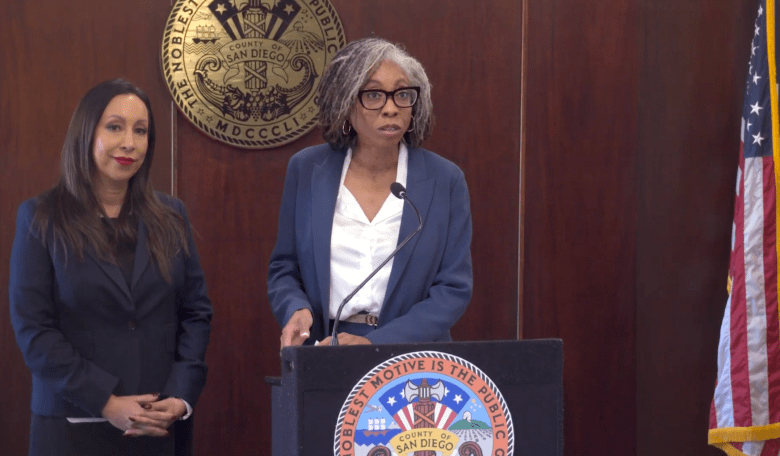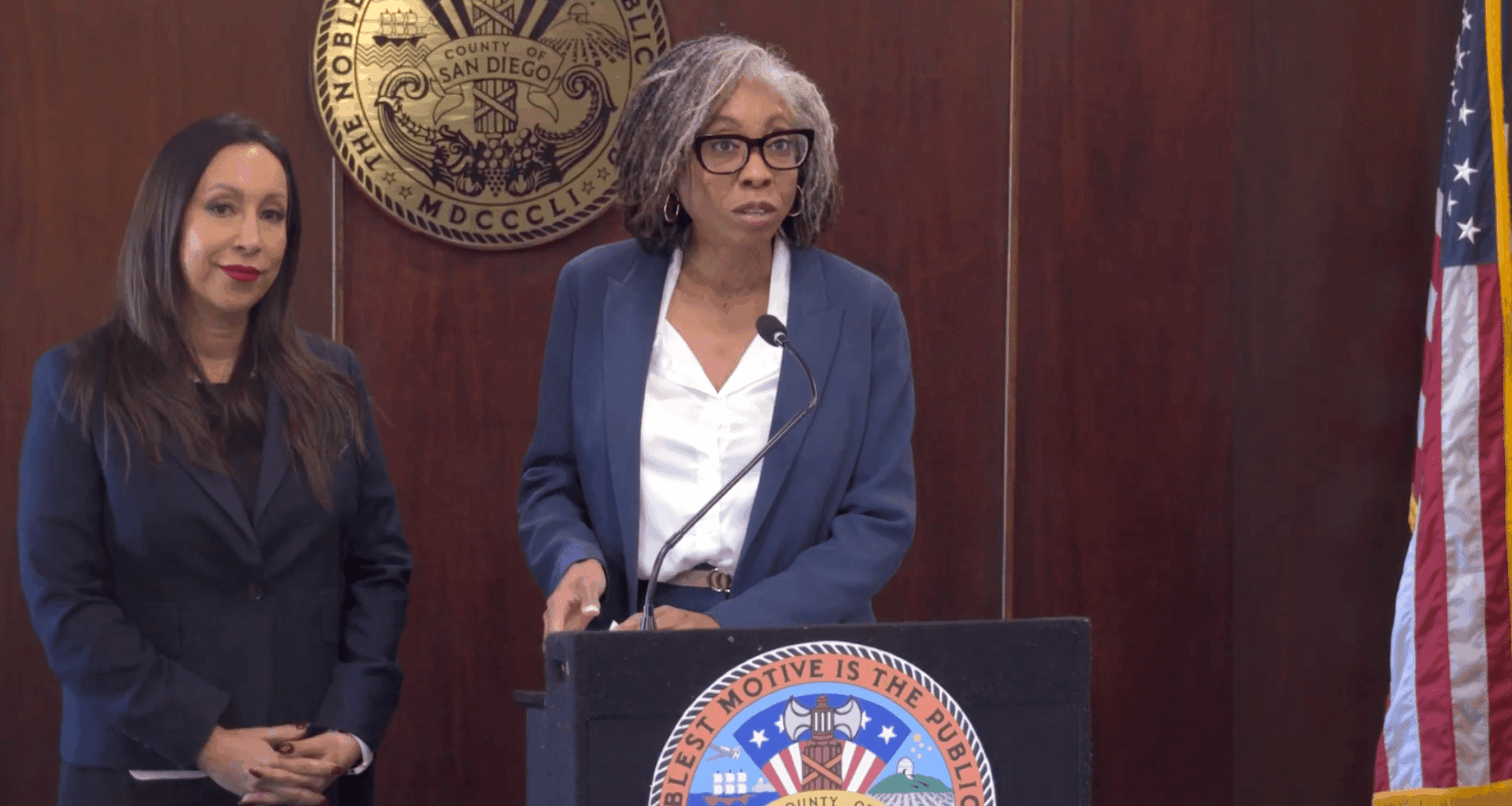 Supervisors Paloma Aguirre (left) and Monica Montgomery Steppe at a press conference to discuss their joint board letter to expand withdrawal management services. (Image courtesy of Supervisor Paloma Aguirre/Youtube)
Supervisors Paloma Aguirre (left) and Monica Montgomery Steppe at a press conference to discuss their joint board letter to expand withdrawal management services. (Image courtesy of Supervisor Paloma Aguirre/Youtube)
San Diego County supervisors Paloma Aguirre and Monica Montgomery Steppe have proposed an expansion of residential withdrawal management, commonly known as detox services.
At a press conference earlier this month, they discussed the new treatment beds that will be added in the region. This initiative aims to combat homelessness and substance use for county residents.
“Homelessness and substance abuse disorder continue to be among the biggest challenges facing San Diego County,” Aguirre said. “Every night an estimated 10,000 people sleep unsheltered, and in the past year alone, 293 lives were lost from drug- or alcohol-related causes.
“These numbers represent real people and a system that needs to do better. We have a chance to change that. To build a system that saves lives instead of losing them.”
In District 1, only two withdrawal management beds are available to residents, a number that Aguirre said is far too low to accommodate the community.
“That leaves many waiting in the emergency room or struggling in the streets without support,” she said. “This isn’t about a lack of compassion, it’s about the need for urgency.”
Aguirre announced that 44 new treatment beds are being added downtown, which is enough to help 2,700 people each year to take the first step toward recovery, stability and housing.
Montgomery Steppe, who represents District 4, said that downtown and central San Diego are home to the most people experiencing homelessness while being impacted by drug use.
She hopes that with the increase in the number of withdrawal management beds, those who need help will be able to obtain it faster and more efficiently.
“Addiction doesn’t stop at district boundaries; it’s a countywide challenge that demands resources where the need is greatest,” Montgomery Steppe said. “Every day, San Diegans struggling with substance use disorder are reaching out for help, and too often they are being told there are no beds available for them.”
READ NEXT
